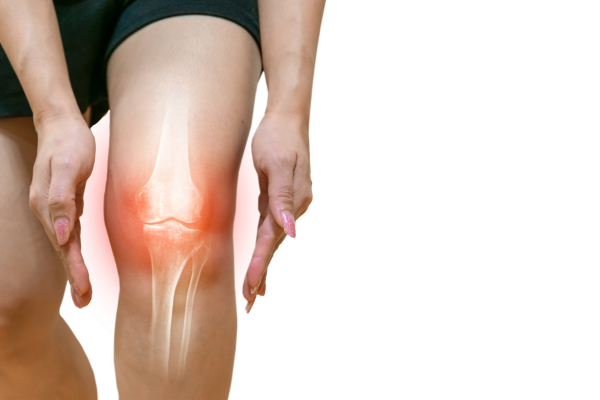Did you know that by the age of 60, nearly 90% of people will have some form of arthritis, according to the CDC? Joint pain isn’t just an inconvenience—it’s an epidemic affecting millions worldwide.
Maintaining joint health is crucial for everyone, but it’s especially important for older adults and those leading active lifestyles.
Healthy joints are essential for mobility, quality of life, and overall well-being.
Ignoring joint health can lead to chronic pain, reduced mobility, and even disability, impacting your ability to enjoy daily activities.
In this blog post, we’ll explore seven powerful ingredients that can help support and maintain joint health.
Let’s dive into the science and benefits of the 7 best ingredients for joint pain.
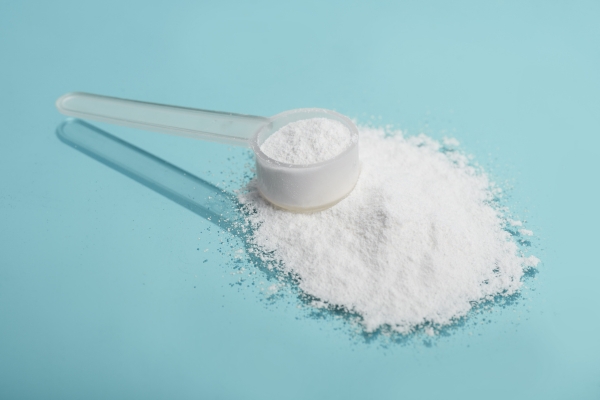
1. Glucosamine
Glucosamine is a natural compound found in the body, primarily in the fluid that surrounds your joints.
It is essential for the development and upkeep of cartilage, the connective tissue that cushions joints and ensures smooth, pain-free mobility.
Glucosamine is a key building block for the synthesis of glycosaminoglycans, which are essential components of cartilage. It helps maintain the structural integrity of cartilage, ensuring that joints function smoothly.
As we age, the body’s natural production of glucosamine decreases, which can lead to joint deterioration and pain.
Numerous studies have demonstrated the effectiveness of glucosamine in reducing joint pain and improving function, particularly in individuals with osteoarthritis. [1]
The typical recommended dosage of glucosamine sulfate is 1,500 mg per day.

2. Chondroitin
Chondroitin is a naturally occurring substance found in the connective tissues of the body, particularly in cartilage.
It is a major component of cartilage that helps it retain water, providing essential shock absorption and elasticity to the joints.
Chondroitin helps prevent the breakdown of cartilage by inhibiting enzymes that degrade cartilage tissue. It also promotes the repair of damaged cartilage by stimulating the production of new cartilage components.
Like glucosamine, chondroitin production in the body decreases with age, contributing to joint issues.
Several studies have shown that chondroitin can significantly reduce joint pain and improve mobility, particularly in people with osteoarthritis. [1]
The typical recommended dosage of chondroitin sulfate is 800-1,200 mg per day.
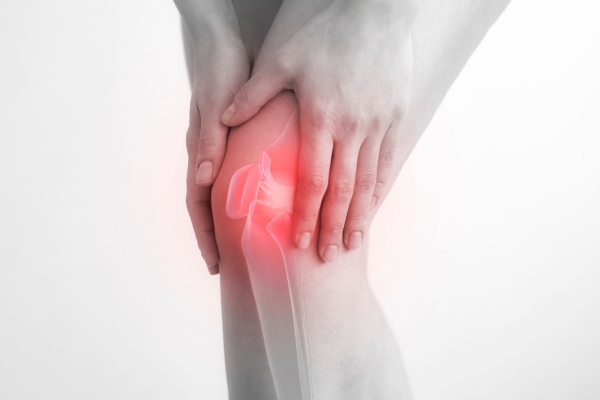
3. MSM (Methylsulfonylmethane)
Methylsulfonylmethane (MSM) is known for its anti-inflammatory properties and is commonly used as a dietary supplement to support joint health.
MSM helps reduce inflammation in the joints, which is a key factor in managing conditions like arthritis.
It also supports the production of collagen, a vital protein for maintaining the integrity and flexibility of cartilage and other connective tissues.
Numerous clinical studies have highlighted the benefits of MSM including reduced joint pain and stiffness while improving physical function in individuals with osteoarthritis. [3]
The standard recommended dosage of MSM for joint health ranges from 1,500 mg to 6,000 mg per day, depending on the severity of symptoms and individual tolerance.
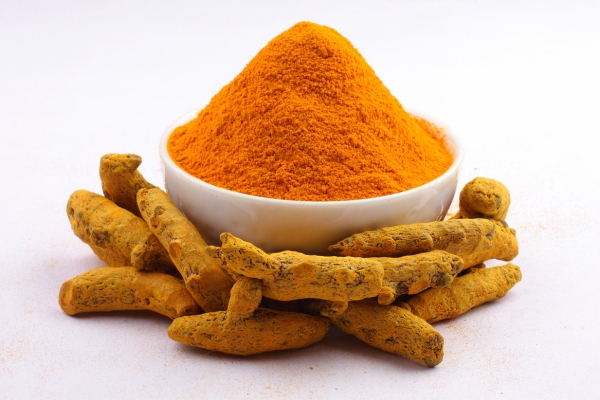
4. Turmeric (Curcumin)
Turmeric is a bright yellow spice commonly used in Asian cuisine, particularly in Indian dishes like curry.
The active compound in turmeric is curcumin, which is responsible for most of its health benefits.
Curcumin helps reduce inflammation in the joints by inhibiting molecules that cause inflammation. Its antioxidant properties also help neutralize free radicals that can damage joint tissues.
Several studies have shown that curcumin is effective in reducing symptoms of arthritis, including pain and stiffness.
For instance, one study found that curcumin was as effective as ibuprofen in reducing pain in patients with knee osteoarthritis. [3]
The typical recommended dosage of curcumin for joint health ranges from 500 mg to 2,000 mg per day.

5. Omega-3 Fatty Acids
Omega-3 fatty acids are vital nutrients that play a key role in maintaining overall health.
Since the body cannot synthesize these fats on its own, it is necessary to obtain them through dietary sources or supplements.
Omega-3 fatty acids have powerful anti-inflammatory properties. They reduce the production of inflammatory chemicals (cytokines) and enzymes that can damage joint tissues.
By lowering inflammation, omega-3s help alleviate joint pain and stiffness associated with conditions like arthritis. Additionally, omega-3s support the production of natural lubricants in the joints, which improves joint flexibility and overall function.
Several studies have shown that omega-3 fatty acids can significantly improve joint pain and morning stiffness. [4]
The typical recommended daily intake of EPA and DHA combined is around 250-500 mg for general health.
For individuals with joint pain or inflammation, higher doses ranging from 1,000 to 3,000 mg per day may be beneficial.
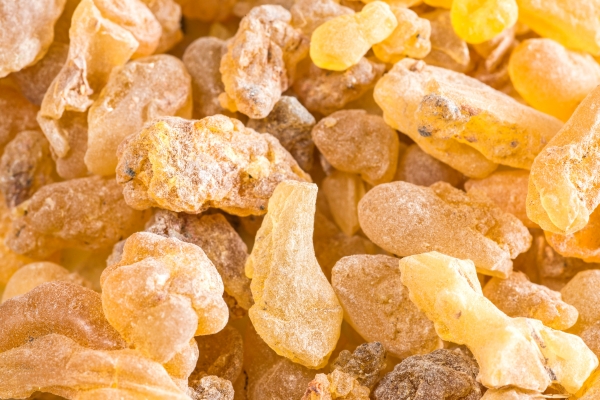
6. Boswellia Serrata
For centuries, Boswellia Serrata has been a staple in traditional Ayurvedic medicine, renowned for addressing chronic inflammatory ailments.
The plant’s efficacy lies in its boswellic acids, which possess powerful anti-inflammatory properties.
Boswellia Serrata works by inhibiting the production of pro-inflammatory enzymes and reducing the synthesis of inflammatory cytokines.
This action helps decrease inflammation in the joints, providing relief from pain and improving mobility. Its effectiveness in reducing inflammation makes it particularly beneficial for individuals suffering from arthritis and other joint disorders.
Several studies have demonstrated the efficacy of Boswellia Serrata in managing osteoarthritis symptoms.
One study found that patients with osteoarthritis of the knee experienced significant reductions in pain and improvements in physical function after taking Boswellia extract. [5]
The typical recommended dosage of Boswellia Serrata extract for joint health is 300-500 mg, taken two to three times daily.

7. Collagen
Collagen is a primary component of cartilage, the tissue that cushions joints and allows for smooth, pain-free movement.
As we age, the body’s natural collagen production decreases, leading to a breakdown in cartilage and joint issues.
Supplementing with collagen can help maintain cartilage structure and support joint integrity, reducing the risk of joint degeneration.
Research has shown that collagen supplements can significantly improve joint health.
One study reported that collagen supplementation reduced joint pain in individuals with osteoarthritis, enhancing their overall joint function and quality of life. [6]
The typical recommended daily dosage of collagen for joint health ranges from 5 to 10 grams.

Wrap-Up and Key Points to Remember
Joint health is a vital aspect of overall well-being, especially as we age or lead active lifestyles.
By incorporating key ingredients such as Glucosamine, Chondroitin, MSM, Turmeric (Curcumin), Omega-3 Fatty Acids, Boswellia Serrata, and Collagen into your daily regimen, you can effectively support and maintain healthy joints.
These ingredients have been scientifically shown to reduce inflammation, alleviate pain, and promote cartilage health, ensuring you can stay active and enjoy life to the fullest.
Don’t let joint pain hold you back. Take proactive steps to support your joint health today.
Explore our range of high-quality joint health supplements at Critical Nutrition Labs and discover how these powerful ingredients can make a difference in your life.
Key Points to Remember
- Glucosamine: Helps build and maintain cartilage; recommended dosage is 1,500 mg per day.
- Chondroitin: Prevents cartilage breakdown and promotes repair; recommended dosage is 800-1,200 mg per day.
- MSM (Methylsulfonylmethane): Reduces inflammation and supports collagen production; recommended dosage is 1,500-6,000 mg per day.
- Turmeric (Curcumin): Provides anti-inflammatory and antioxidant effects; recommended dosage is 500-2,000 mg per day.
- Omega-3 Fatty Acids: Reduces inflammation and supports joint lubrication; recommended dosage is 250-500 mg of EPA and DHA combined for general health, and 1,000-3,000 mg per day for joint pain.
- Boswellia Serrata: Inhibits pro-inflammatory enzymes and reduces joint inflammation; recommended dosage is 300-500 mg, two to three times daily.
- Collagen: Maintains cartilage structure and supports joint integrity; recommended daily dosage is 5-10 grams.
References
Nutrients
Toguchi A, Noguchi N, Kanno T, Yamada A. Methylsulfonylmethane Improves Knee Quality of Life in Participants with Mild Knee Pain: A Randomized, Double-Blind, Placebo-Controlled Trial. Nutrients. 2023 Jun 30;15(13):2995. doi: 10.3390/nu15132995. PMID: 37447322; PMCID: PMC10346176.
Clinical Interventions in Aging
Kuptniratsaikul V, Dajpratham P, Taechaarpornkul W, Buntragulpoontawee M, Lukkanapichonchut P, Chootip C, Saengsuwan J, Tantayakom K, Laongpech S. Efficacy and safety of Curcuma domestica extracts compared with ibuprofen in patients with knee osteoarthritis: a multicenter study. Clin Interv Aging. 2014 Mar 20;9:451-8. doi: 10.2147/CIA.S58535. PMID: 24672232; PMCID: PMC3964021.
Nutrients
Cordingley DM, Cornish SM. Omega-3 Fatty Acids for the Management of Osteoarthritis: A Narrative Review. Nutrients. 2022 Aug 16;14(16):3362. doi: 10.3390/nu14163362. PMID: 36014868; PMCID: PMC9413343.
Nutrients
Pérez-Piñero S, Muñoz-Carrillo JC, Victoria-Montesinos D, García-Muñoz AM, Andreu-Caravaca L, Gómez M, Schölzel M, García-Guillén AI, López-Román FJ. Efficacy of Boswellia serrata Extract and/or an Omega-3-Based Product for Improving Pain and Function in People Older Than 40 Years with Persistent Knee Pain: A Randomized Double-Blind Controlled Clinical Trial. Nutrients. 2023 Sep 3;15(17):3848. doi: 10.3390/nu15173848. PMID: 37686880; PMCID: PMC10490338.
Nutrients
Martínez-Puig D, Costa-Larrión E, Rubio-Rodríguez N, Gálvez-Martín P. Collagen Supplementation for Joint Health: The Link between Composition and Scientific Knowledge. Nutrients. 2023 Mar 8;15(6):1332. doi: 10.3390/nu15061332. PMID: 36986062; PMCID: PMC10058045.

